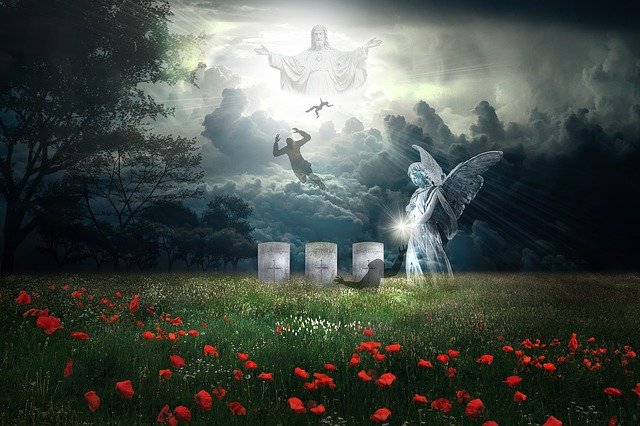 ML writes: “Someone just told me that you can lay on the grave of a saint to receive their anointing. They said it’s the same as what Catholics do with their relics. Is this true?”
ML writes: “Someone just told me that you can lay on the grave of a saint to receive their anointing. They said it’s the same as what Catholics do with their relics. Is this true?”No, it is not true.
The practice ML mentions is known as “grave soaking" and it's just another gimmick coming out of the controversial pews of Bill Johnson’s Bethel Church in Redding, California.
For those who have never heard of it, grave soaking involves laying on the grave of a deceased saint in order to absorb their “mantle” or anointing. The practice entails literally laying on the grave and trying to “soak” out their presence in order to obtain a portion of their blessing or supernatural abilities.
The practice began with students at Johnson’s Bethel School of Supernatural Ministry where Christians are taught faith healing and how to be revivalists. It’s all part of what Johnson calls the “Elijah anointing” – a great end-time revival that will be initiated by an “Elijah generation” (a concept from the heretical Latter Rain movement) that will transcend all other generations of Christians in their ability to do great works of power. The anointed attend his School of Supernatural Ministry in order to master the supernatural and “make the supernatural natural.” (How’s that for an oxymoron?)
It’s no wonder that young people whose hearts and minds have been filled with this kind of talk will think they can lay on a saint’s grave and somehow soak up their powers.
They can’t, and believing in this is the same as believing in necromancy, that we can contact the dead by evoking them in some way. This practice differs from what Catholics do when we pray at the graves of a deceased saint and invoke their prayers of intercession.
Thankfully, the practice of grave soaking has been shut down, but the notion that it is similar to the Catholic use of relics – which are pieces of the bones, ashes, clothing, or possessions of a saint - reveals a lack of understanding of the Church’s use of relics.
A relic is a sacramental as are medals, blessed palms, holy water, and ashes. If used correctly, these common objects can, like the sacraments, result in the giving of grace and can lead people to receive or respond to grace.
However, as Catholic Answers explains, the object itself has no power of its own and relies completely on the work of God to be efficacious.
“The sacraments (and, derivatively, sacramentals and relics) don’t compel God to work in a certain way. Their use depends on God, who established their efficacy, so their effects are divine, not natural, in their origin. It is God who sanctions the use of relics; it is not a matter of men ‘overpowering’ God through their own powers or the powers of nature, which is what magic amounts to.”
A good example is when Jesus made a mixture of mud and spittle to heal the blind man in John 9:1-7. In doing so, Jesus wasn’t mixing a magic potion. He was simply choosing to use matter in association with the conferral of His grace.
“The Lord is no dualist,” Catholic Answers continues. “He made matter, he loves matter, and he had no qualms about becoming matter himself to accomplish our redemption.”
Even when used for healing, whatever relief might occur with the use of a relic only occurs because God chose to use the object in that way.
That said, it’s easy to see why believing a person can simply laying on the grave of a saint in order to “soak” up their holiness is way off-base. Whatever holiness the saint had in life is not “stuck to their bones,” but was a part of their soul which had been purified and emptied of all that was not of God.
The bottom line is that we are much more likely to acquire the anointing a saint enjoyed in life by imitating their life and virtue, not by laying on their grave.
© All Rights Reserved, Living His Life Abundantly®/Women of Grace® http://www.womenofgrace.com
Women of Grace® has compiled a library of over 1400 articles on New Age and occult related material and has been offering them to the public for more than a decade – at no charge! If you appreciate our research, please prayerfully consider making a donation to support this vital work! Click here to donate!
